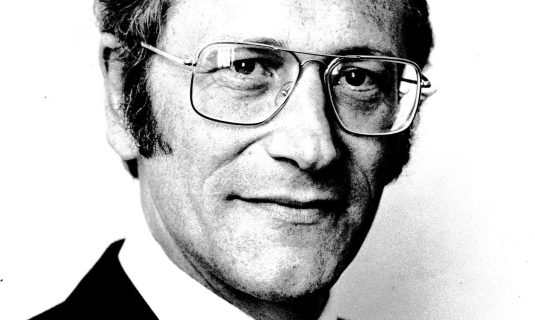
David Tinsley
Former Staff
David Tinsley (MCR, 1959-1970)
David Tinsley died on the 13th May 2020.
The following obituary was provided by David’s daughter, Jane Watkivs.
My father graduated from Oxford university in 1959, he studied Mathematics and rowed for his college. In his final year he was also a rowing coach. He had intended to take a teacher training course, but there was a national shortage of Maths teachers, so he started teaching at St Edwards in the September. This meant that he wasn’t much older than some of the sixth form. As well as teaching Maths he was an officer in the CCF and rowing coach for Apsley house.
David wrote an obituary for his colleague Peter Corlett and provided his email address at the end of it so it is thanks to this that I have some memories of his students. Christopher Langdon wrote that my father was “a brilliant, enthusiastic teacher”, who had an “enthusiasm for rubbing the board clean as soon as you (David) paused for breath”.
J S Gowland wrote “I often think of the enthusiasm with which you (David) got us to enjoy Maths” David “consumed vast quantities of chalk, and one term we measured the total length of chalk before and after each lesson; then we presented him with a graph of chalk usage against time”.
In the early 1960’s, the Maths department pioneered the use of hand calculating machines, then they moved into computers. They used the computer at Oxford university, the sixth formers had to cycle to the Computing Laboratory, prepare paper tapes on the “flexo-writers” and submit their programs to the computer operators for overnight runs. Results were then scrutinised, corrected and re-submitted until working programs were achieved. Even simple programs would take a few days before they worked as intended.
The outcome of this innovative work was “Practical Programming” by P N Corlett and J D Tinsley, the first programming book written for schools and colleges. All the programs were thoroughly tested by the sixth formers.
In September 1966 David and his sixth formers trialled the first school’s computer, it was manufactured by IBM. Using a TV screen as a monitor and a domestic tape recorder as a back-up store (both of these were world firsts), the computer had a touch keyboard similar to an ATM and boasted a magnetic core memory of just 4000 bytes. St Edward’s boys soon programmed the machine to perform complex routines, solving problems which astounded visiting IBM engineers. Tony Malins was very proud to write a noughts and crosses program. Sometimes if they were short of tapes, they would use cassettes belonging to the family and David’s daughters would be hoping to play children’s songs, but all they got was a high-pitched noise.
David invented the matchbox computer as a method of teaching the basic principles of programming. This was made from matchboxes which were labelled with “addresses”. Each drawer held an instruction for the user to carry out. Instructions were in English and “matchbox” language. There were programs to perform calculations and sorting, but the program that was written for me, aged six, was about buying fireworks, because it was nearly bonfire night.
Away from the classroom David was an enthusiastic rowing coach, cycling along the towpath and shouting out advice, he always arrived home with a black ring around his mouth from the megaphone (only metal) and he didn’t always look where he was going so, he fell off his bike.
The masters and their wives put on Gilbert and Sullivan shows and David was in the chorus for these, he was a pirate in the Pirate of Penzance. David’s wife Joyce designed the costumes.
After leaving St Edward’s David moved to the National Computer centre where he worked with universities and schools to set up computer science courses and was involved in an Open University TV course for teachers. He then moved to Birmingham as a schools’ inspector with responsibility for Computer Education and worked on the national curriculum for computer education. In Birmingham he moved into post 16 education and then he moved to Sheffield where he became Chief Inspector of Training to monitor Youth and Adult training programmes.
David took early retirement in 1992, but he soon became bored and worked as Director of Derbyshire Red Cross for three years, before retiring properly.
In retirement he and Joyce travelled for holidays in Europe, particularly Italy. In Bakewell and Chichester, he was treasurer in the local churches and ran the church fete. He was involved in running the local music societies. He taught many of his friends and neighbours how to use their computers and gave them general IT support.
As for me the lessons on the matchbox computer paid off and I took a degree in Computer Science, I currently work in IT for the local hospital trust. One of David’s granddaughters has just completed a computer science degree and now is studying for a master’s degree in Data Science. I would love to hear from anyone who has memories of David, please email watkivs@blueyonder.co.uk.
Jane Watkivs
If you would like to leave any messages for the family or share any memories please click here.
Print page